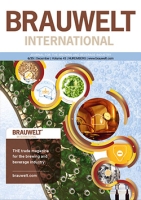An Elizabethan rascal would have said: “For if thou art not willing I will take thee by force.” A dealmaker will only utter: “I’ll make you an offer you cannot refuse.” Pick-up lines may have changed. Intentions haven’t. As friendly merger opportunities are dwindling, hostile takeovers are making a comeback. Although they are expensive, attract public criticism and historically fail more than half of the time, few executives would give the opportunity a miss to flex their muscle. Or why would Australia’s number two brewer Lion Nathan bestow unwanted attention on the family-run Coopers brewery, knowing full well that they might end up getting their wrists slapped?
Measuring instruments in tunnel pasteurisers may fail to meet quality requirements of brewers due to design-related mistakes. A new development described in this paper ensures that the required accuracy and reliability is achieved, making use of what is technically feasible. In addition to measuring parameters, it also calculates pasteurisation units.
On March 23, 2005 the new filling and process engineering pilot plant of Krones was officially put into operation under attendance of numerous guests from economy and research after a construction period of only ten months. As the head of the department process and beverage technology, Dr. Sven Fischer, stated, R&D now found a fitting home for these two lines of business covering an area of 1200 m2.
The Czechs’ love of beer – it not only manifests itself in the highest per-capita beer consumption in the world, but also in the fact that the first Pilsner was brewed here, in Pilsen. A new can filler in the internationally firmly established Plzensky Prazdroj brewery meets the performance required. Described in the following are its advantages and flexibility – two preconditions for further development as planned.
Beer in Azerbaijan | You would have thought that countries that are rich in natural resources would grow faster than others. Wealth would tickle down and eventually people would unite to enjoy “beer and kebab for all.” Well, perish that thought. Countries that strike oil often tend to do badly. Now that billions of dollars have been poured into post-Soviet Azerbaijan to secure a share of its oil, the question is: will Azerbaijan manage its wealth more wisely than others? Or will it become the Nigeria of the Caspian Sea?
A new modular measuring system determines °Brix and CO2 content of non-alcoholic beverages as well as alcohol, extract, original gravity, CO2 content and other important quality parameters in beer, without prior sample preparation. This article describes the instrument design and the functional principle, using examples of measurements.
Cold Aseptic Filling (CAF) requires a filling plant that operates aseptically, with complete absence of germs in the filled containers and plant peripherals ahead of the filling plant that render the product to be filled completely germ-free thermally and keeps it such for a long period of time, before passing it on – cooled down again – to the filling plant. This is the only way of reliably achieving the increasingly long shelf lives of soft drinks, combined with the convenience of light plastic packaging, without addition of preservatives.
Beer drinking enjoyment depends on temperature and appearance, as well as on good taste. Dispensing from kegs has become established practice but damaged kegs or those handled incorrectly during transport can considerably diminish enjoyment of beer and lead to complaints and claims. This report is meant to show up weak points and describe possibilities of integrating a well functioning maintenance and control system in the plant.
Egg Brewery, located in Egg/Vorarlberg Austria, fills beer and lemonade in five different bottle types with various types of closures. The new BKM Varifill 24/KK/6/SV6 short-tube filler provides significant advantages for this medium-sized brewery. Together with data on commissioning, these are presented in the following contribution.
A sensible approach to maintenance is important for preservation of value and improvement of availability of machinery and plant in breweries. Correct decisions within the conflicting pulls of economics – safety – availability assure that costs are minimised and availability of plant is maximised. This involves an optimal mixture of clearance of outages, preventive, condition-orientated and anticipatory maintenance.
Breweries are currently increasingly confronted with a new challenge arising from continuing efforts of marketing departments to achieve greater product differentiation. Individually styled bottles on the market for filling the various products of a brewery create new framework conditions for handling of empties. In this article, a new integrated sorting line from Krones is presented.


